Residency Experience
Goals & Objectives
The overall goals of the University of Minnesota Radiology Residency Program are to:
- Exceed ACGME RRC program requirements
- Have residents successfully complete the residency program and become ABR certified
- Produce a diverse group of outstanding radiologists fully engaged in lifelong learning in all walks of medical practice including patient care, research, administration, and education, while in private practice, university or other academic practice, government, industry or charitable organization
Residents receive training through rotations and other educational activities at the University of Minnesota (UMMC), University of Minnesota Masonic Children’s Hospital (UMMCH), Hennepin Healthcare (HCMC), and the Minneapolis Veterans Affairs Health Care System (MVAHS).
Didactic Schedule
Core Lecture Series: Weekly on Wednesday mornings residents gather at the UMMC Campus for a block of lectures by radiology faculty on core topics in diagnostic radiology. The core curriculum repeats every two years. Teleconferencing from our affiliated sites is available.
Noon Conference Series: This conference series starts in September and goes through June of each academic year. Faculty, fellows and residents present at these conferences. The conferences include a mix of didactic, journal club and interactive case conferences.
Physics Didactic Series: Dr. Ngoneh Jallow, medical physicist, presents her physics curriculum in a series of monthly lectures. This lecture series covers topics that are encountered in clinical imaging, as well as topics that appear in the radiology core examination.
View the Didactic Schedule.
Rotation Information
Categorical residents spend their PGY1 year in the Hennepin Healthcare Transitional Year Program.
First year radiology resident rotations are four weeks in length.
University Campus Rotations:
- Musculoskeletal
- Pediatric (at the Masonic Children’s Hospital)
- Fluoroscopy
Veterans Hospital Rotations:
- Computed Tomography
- Interventional Radiology
- GI (fluoroscopy)
- Ultrasound
- Nuclear Medicine
Hennepin Healthcare Rotations:
- Neuroradiology
- Body Imaging
Other experiences in the R1 Year
- All R1 residents attend the American College of Radiology annual meeting in Washington DC with travel expenses covered by the Minnesota Radiological Society. MnRad.org
- R1 residents team up with a faculty mentor to complete a PQI project.
- R1/R2 peer mentoring program.
- Medical student teaching in the reading room.
- Call Prep lecture series
- Physics lecture series
- Buddy call beginning December of R1 year
- Mini boards - a structured review of cases organized by faculty at Hennepin Healthcare to simulate a call experience and to facilitate feedback prior to beginning call.
R2 residents spend 20% of their time at the Veteran’s hospital, and 40% of their rotations at both the University and Hennepin Healthcare.
- Chief resident election is held at the end of the R2 year. Three residents are elected by the faculty and residents to be chief residents.
- One resident is elected to be the RSNA resident representative.
R3 residents spend 30% of their time at the Veteran’s hospital, 40% of their rotations the University and 30% Hennepin Healthcare.
- All R3 residents have to opportunity to attend the American Institute for Radiologic Pathology 4-week course in Silver Spring, Maryland (department pays tuition).
- Commercial Physics course- registration is paid by the department.
- Two R3 residents are elected to attend the University of Minnesota Resident Leadership Academy comprised of ten Friday full-day seminars.
- Two residents are elected to participate as resident representatives to the GMEC meetings which are held monthly.
R4 resident rotations are primarily at the University hospital. R4 residents select 3 mini fellowships (2-3 rotations each) which allows more focussed time in areas of their choosing.
- R2-4 rotations are 3 weeks in length and include call blocks at both the University and Hennepin Healthcare.
- Apply for research time in years R2-4
- Class ACR representative attends the annual meeting (travel paid by department)
- R2-4 residents, fellows and staff participate in giving medical student afternoon didactic lectures
Team Building
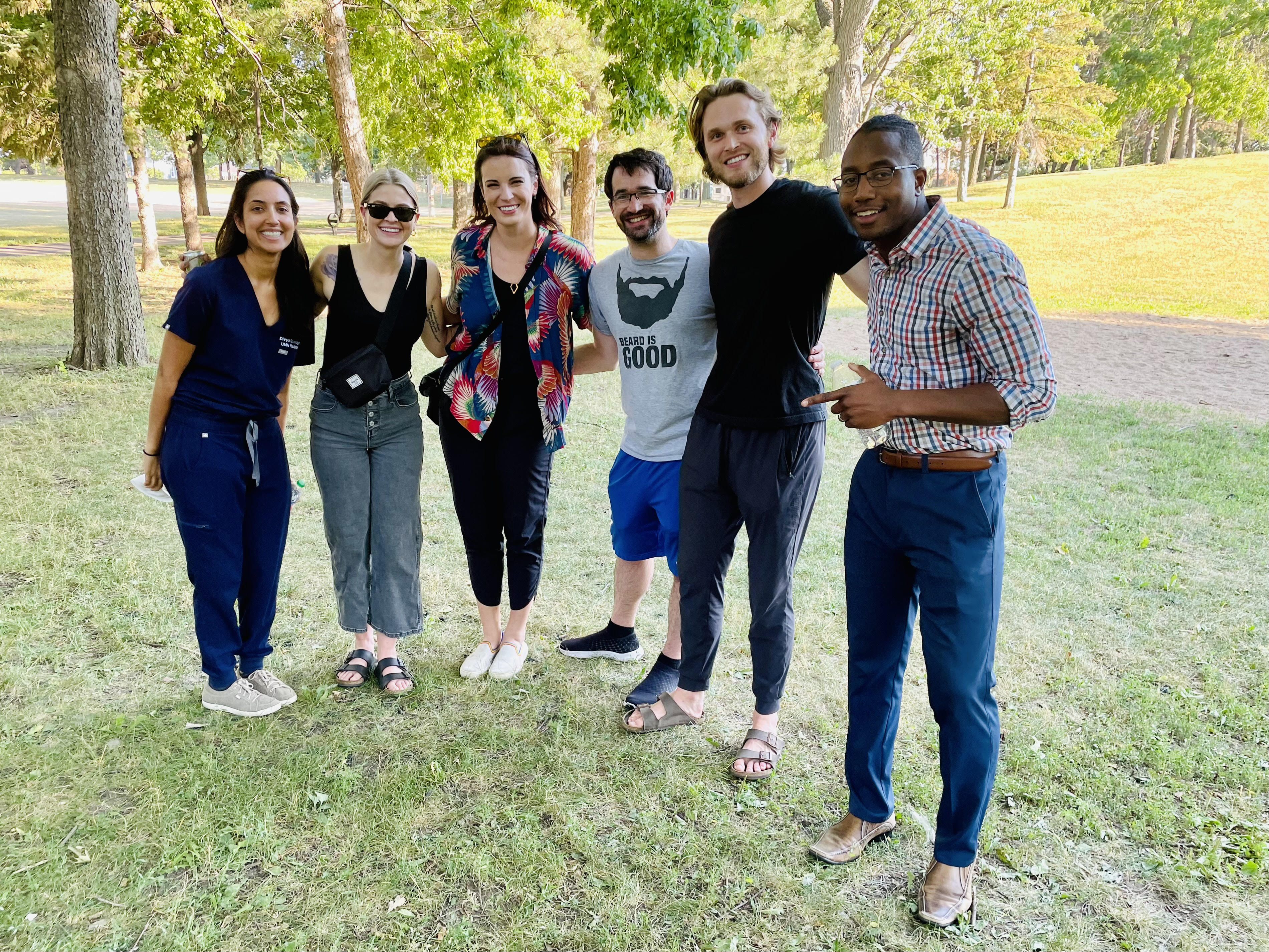
Resident Wellness Committee
The Resident Wellness Committee is a group of resident volunteers who advocate for and plan for the needs of residents, ranging from the basics to team building events.
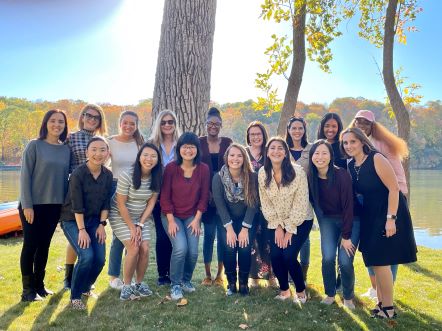
Curie Club
This is an organization comprised of residents, fellows, researchers and faculty with an aim to promote gender equality in radiology and is open to allied individuals regardless of gender. Activities are organized by Dr. Cayci and Dr. Church, department diversity officers.
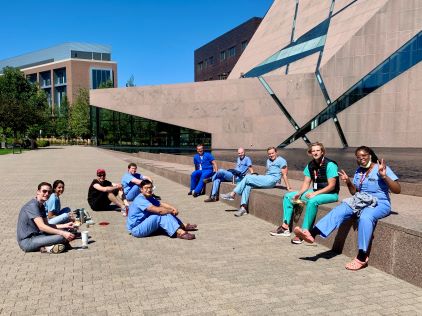
R1/R2 Mentor Meetings
Meet and ask questions in a low-stakes environment.
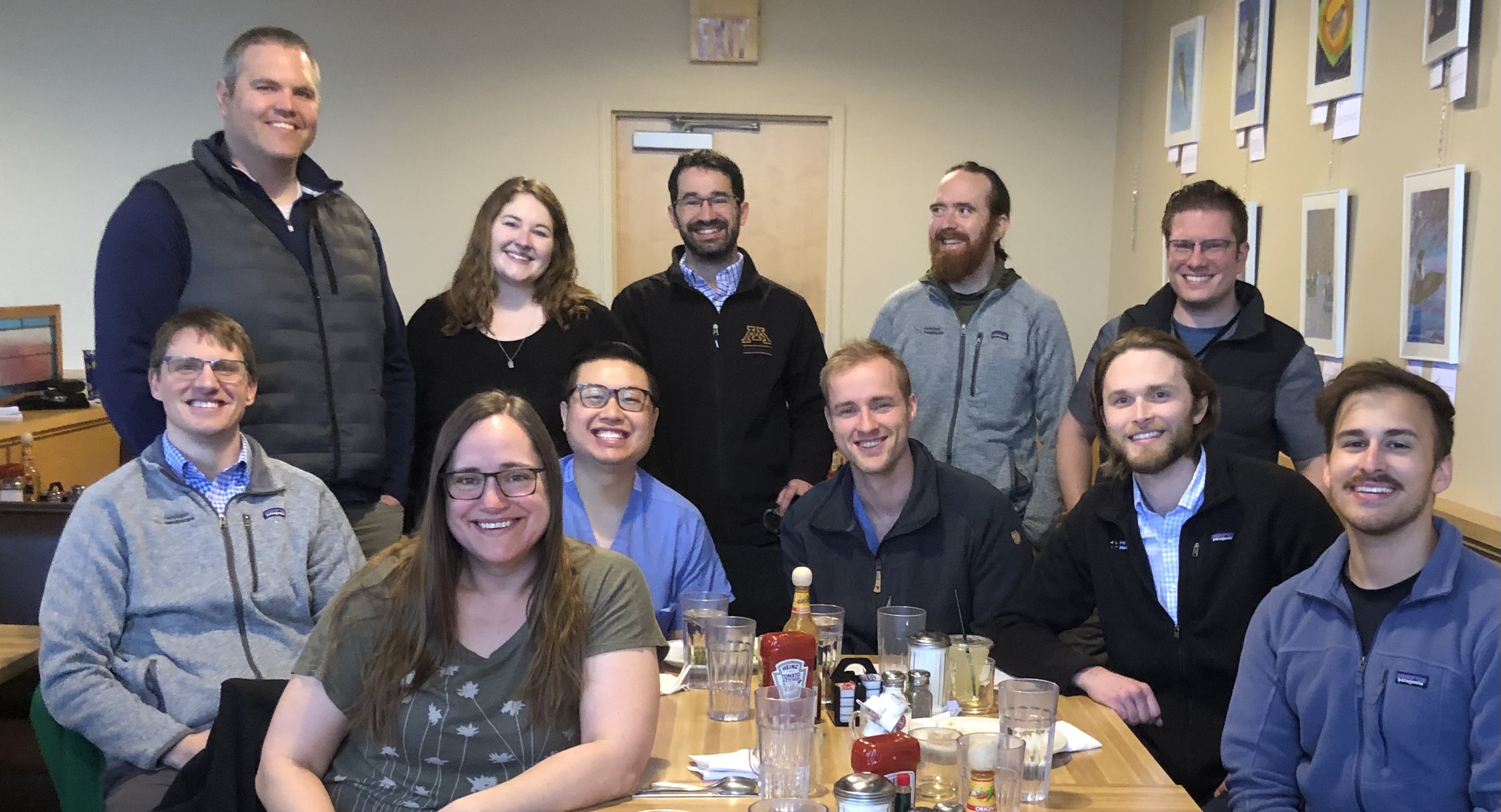
Annual Class Breakfasts with The PD and APD
Join your residency class and Drs. Holm and Hoven for a casual breakfast.
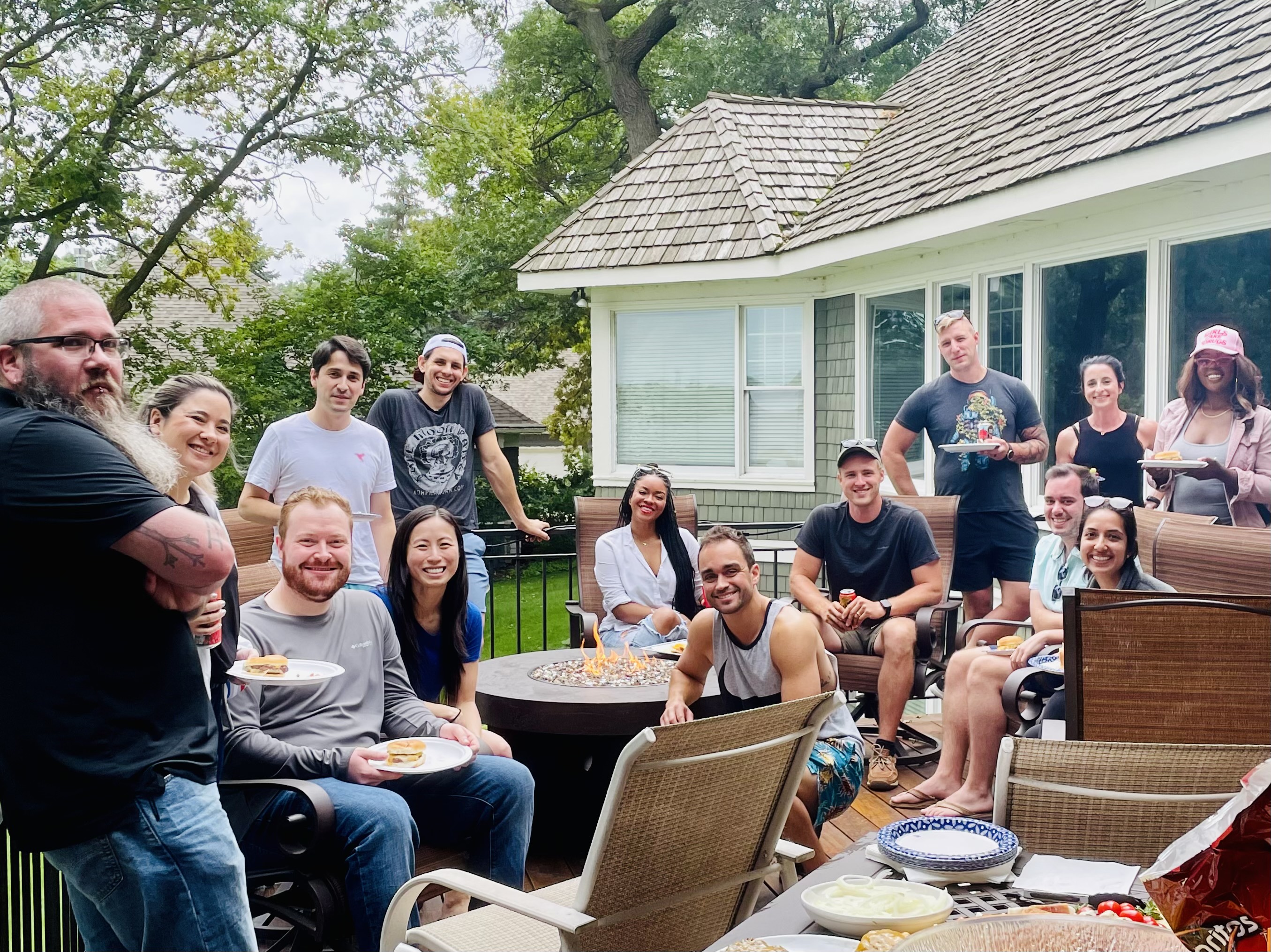
Lake Day event hosted by one of our residents